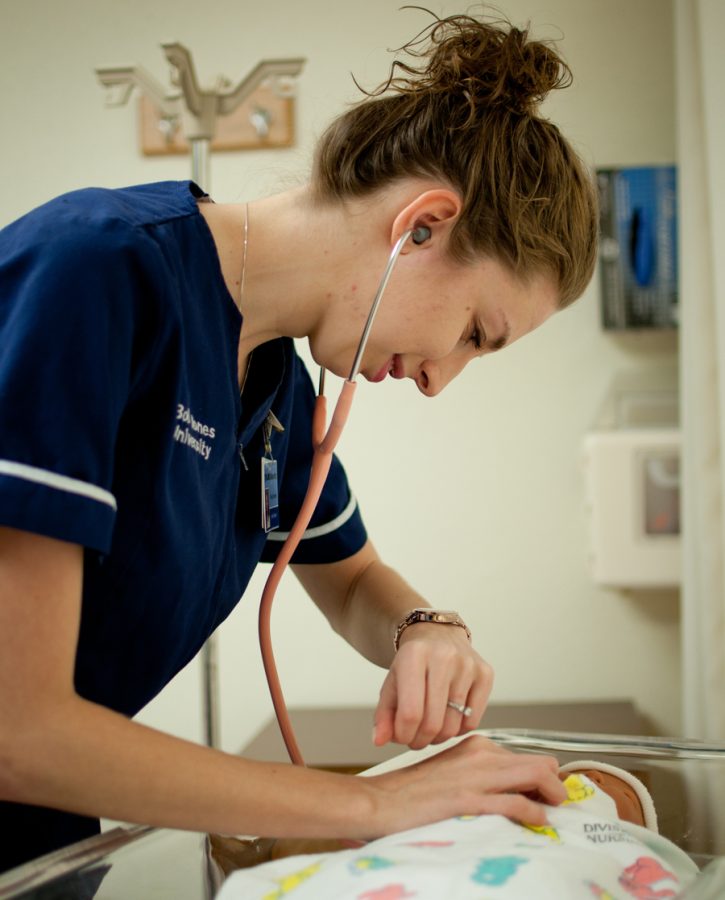What describes a nursing student? Dark blue uniforms, white shoes, busy schedules and lots of paperwork.
With a demanding class schedule, the stress of clinicals and passing classes, nursing students could be considered some of the busiest students on campus.
As a student in the four-year program, a freshman will take 19 credits of prerequisite core courses, including biology, chemistry, nutrition, and anatomy and physiology along with other freshman-level courses.
In order to be considered for admission to nursing clinical courses, freshmen need to finish their second semesters with a minimum 2.5 GPA with at least a C in all of their core classes. There are a limited number of slots in each nursing class, so freshmen must work hard to be admitted into the class.
Sophomore nursing students start clinicals, which give them an opportunity to practice what they learn in their classes. “[The students] are functioning in the role of a nurse under the direction of both a staff nurse and the nursing instructor,” said Miss Cynthia McGuire, who chairs the Division of Nursing and Health Science.
During clinicals, sophomores arrive at the hospital in the morning. They receive a report on a patient from a nurse, assess the patient (identify what is happening and how to care for them) and take their vital signs.
Throughout the morning, the student will give the patient a bed bath, help patients walk in the hallways, change dressings and assist with many other tasks. Sophomores are also learning to give shots for the first time.
Clinicals and practicum are fulfilled in the Greenville Hospital System, Spartanburg Regional Medical Center, Bon Secours St. Francis Health System, home health/hospice areas and multiple other health centers in the area.
Clinicals occur two times a week. Students are assigned paperwork that is due weekly and is time consuming. The paperwork is designed to teach students about the different problems their patients are facing and how to treat them.
Juniors and first semester seniors continue clinicals with more complicated problems and increased independence.
During the first eight weeks of their last semesters, nursing students take block classes. After taking their final exams in the beginning of March, they do practicum for the next six weeks.
“Practicum is really the frosting on the cake for the whole program,” McGuire said. “It is combining all the experience they’ve had and pulls it together, helping them transition from school to actual practice. By the time they are done, they’re independent and confident in their skills.”
Kim Chamberlain, a senior nursing major, is working at Baptist Easley Hospital in the intensive care unit for her practicum. She works from 7 p.m. to 7 a.m. three days a week. “I have learned so much from my [class] lectures,” Chamberlain said. “And it can be an overwhelming amount of information to memorize, but when I am at the hospital and I get a patient, all that information comes together in a way that could never happen through lecture or theory.”
Even though nursing students take on a rigorous academic load, the hard work really pays off once they graduate.
“We have a very high pass rate — in the upper 90 [percent],” McGuire said of the NCLEX (the test every nursing student must take in order to become a registered nurse). “Our nursing program is very demanding, and it can be emotionally draining, but it is very rewarding.”

























































